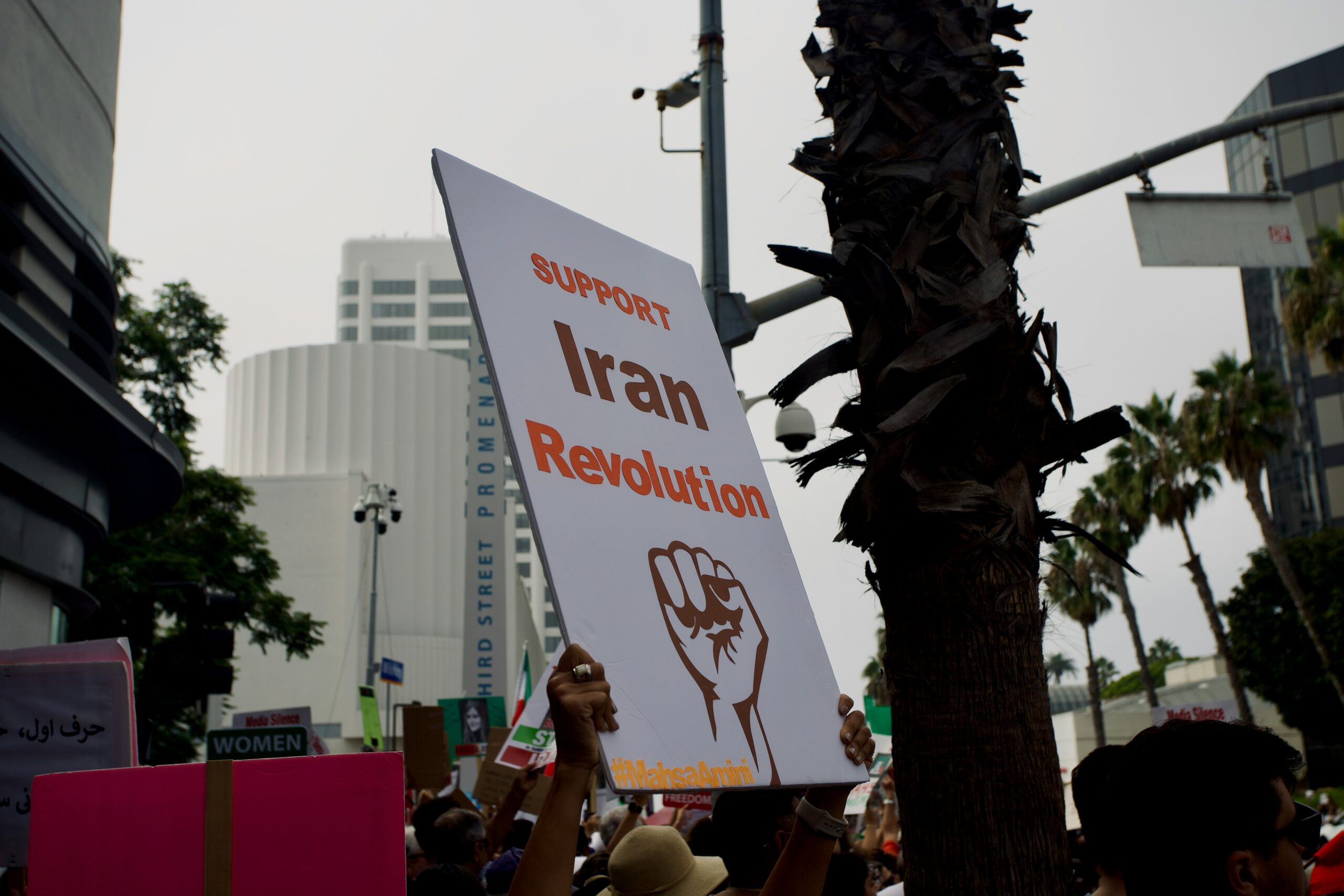Introduction
The long-standing contest between Iran and Israel continues to make captions encyclopedically, drawing attention from policymakers, security officials, and everyday citizens likewise. The unpredictable relationship between these two Middle Eastern powers is fueled by ideological, political, and strategic factors, frequently manifesting in covert operations, cyber warfare, political competitions, and at times, direct military conflict. As recent Israeli attacks on Iran have boosted pressures, questions like “ Why did Israel attack Iran? ” and the possibility of a full- scale Israel- Iran war dominate both original and transnational news cycles.
This composition delves deep into the Iran-Israel relationship, pressing the history, recent developments, geopolitical counteraccusations, and what lies ahead for the two nations.
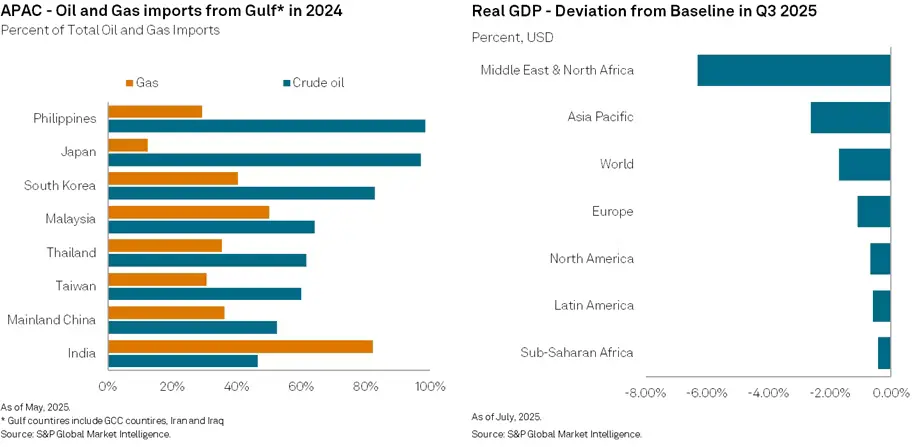
A Brief Historical Overview: Iran and Israel
In the mid-20th century, relations between Iran and Israel were especially cordial. During the reign of Shah Mohammad Reza Pahlavi, Tehran maintained strong, profitable, and military ties with Tel Aviv. Israel was one of the first countries to recognize Iran’s new government in 1950, and the two participated interests in fighting Arab nationalism and Soviet influence.
Still, the 1979 Islamic Revolution in Iran marked a dramatic shift. The recently established Islamic Republic denounced Israel as an illegitimate state and declared support for the Palestinian cause. Ayatollah Khomeini and consecutive Iranian leaders labeled Israel the “ Little Satan, ” aligning Iran ideologically and materially with anti-Israel groups similar to Hezbollah in Lebanon and Hamas in Gaza. Since also, Open hostility has also defined the Iran-Israel relationship.
Recent Escalations: Israel Attacks Iran
In recent times, tensions between Israel and Iran have risen sharply, especially concerning Iran’s nuclear program. Israel perceives a nuclear-fortified Iran as an empirical threat. As a result, it has constantly taken preemptive measures to disrupt Iran’s nuclear intentions, frequently leading to military strikes,cyber-attacks, and targeted assassinations of Iranian nuclear scientists.
In April 2024, for illustration, a significant escalation occurred when Israel attacked Iranian military installations near Tehran. The operation, allegedly conducted by Israeli fighter jets and drones, targeted what was believed to be a secret underground uranium enrichment installation. Israel didn’t officially claim responsibility, but anonymous military officers verified the operation to Israeli news outlets.
The immediate fate saw fiery responses from Iranian leaders, promising “ severe retribution. ” This raised transnational concern about an implicit Israel-Iran war, with numerous world leaders prompting restraint.
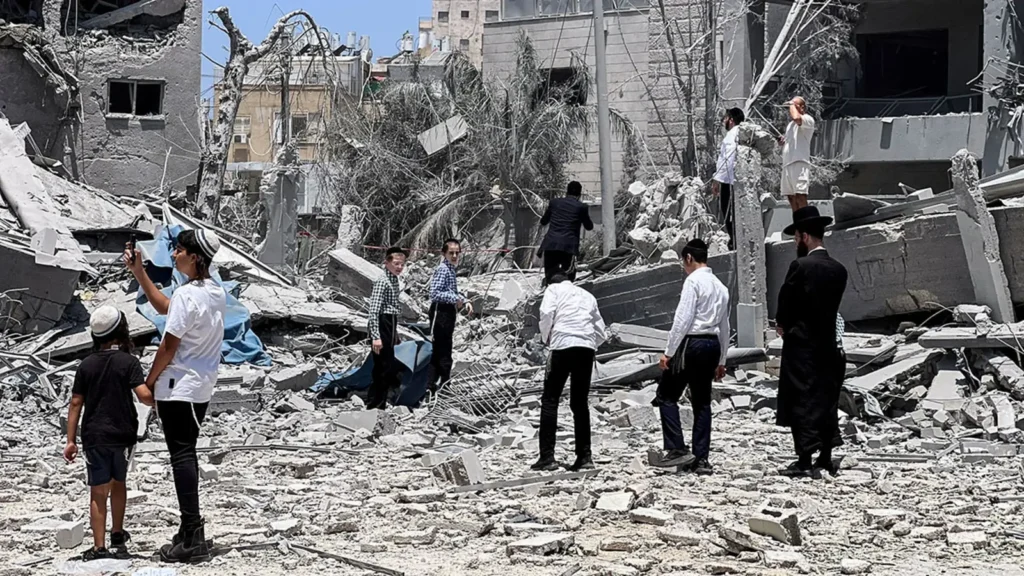
Why Did Israel Attack Iran?
The core reason behind Israeli attacks on Iran lies in the latter’s controversial nuclear program. While Iran insists its program is for peaceful purposes, Israel and several Western nations believe that Iran is clandestinely developing nuclear munitions.
Israel’s doctrine of preemptive defense — especially concerning nuclear pitfalls — drives its decision- timber. Israeli Prime Minister and military leaders argue that staying until Iran possesses a nuclear arsenal would be too dangerous. This sense is grounded on Israel’s unique geographic and strategic vulnerabilities; girdled by hostile actors, it can not afford a misapprehension.
Therefore, when intelligence indicates progress in Iran’s nuclear capabilities, Israel frequently feels compelled to act, indeed, if it means risking indigenous escalation.
The Role of Tehran and Tel Aviv in the Conflict
Tehran, the political and military heart of Iran, plays a pivotal part in shaping anti-Israel programs. The Iranian Revolutionary Guard Corps( IRGC), which reports directly to the Supreme Leader, coordinates Iran’s proxy wars and ballistic missile development programs. Tehran’s support for Hezbollah, Islamic Jihad, and Hamas has led Israel to carry out dozens of covert operations and airstrikes across Syria and Lebanon, where these groups are active.
Tel Aviv, although not Israel’s sanctioned capital( which is Jerusalem), is a crucial mecca for military planning and political outreach. It also constantly faces pitfalls of bullet retribution from Iran-aligned groups, especially during flare-ups in Gaza or southern Lebanon.
The collective targeting of these metropolises either directly or symbolically — underscores the deeply particular and nationalistic aspects of the Israel-Iran conflict.
Global Implications and Regional Reactions
The ongoing hostility between Iran and Israel poses pitfalls beyond the two countries involved. Oil painting requests are frequently affected by escalations, particularly when conflicts block dispatching lanes in the Strait of Hormuz. The US, which maintains a close alliance with Israel and has a complex relationship with Iran, frequently finds itself walking a political tightrope.
Meanwhile, Gulf Arab states like Saudi Arabia and the UAE — traditional rivals of Iran — frequently support Israel’s station still, seeing Iran’s indigenous intentions as destabilizing. At the same time, Turkey, Russia, and China each have unique interests in either containing or benefiting from the Iran-Israel contest.
The broader Middle East remains in a delicate balance, where one misapprehension or military escalation could enkindle an indigenous war involving multiple actors.
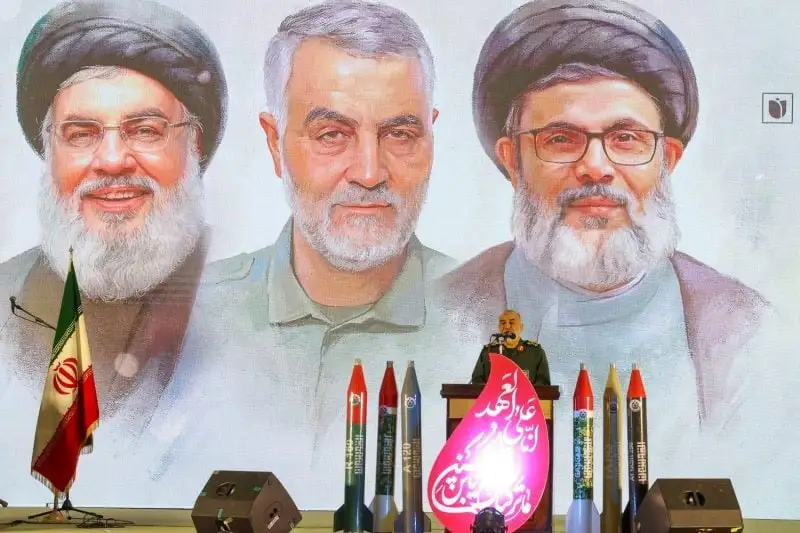
Is an Israel-Iran War Inevitable?
Despite the frequent captions prognosticating an each- out Iran- Israel war, both nations have so far managed to avoid direct, prolonged conflict. Rather, they engage in a “ shadow war ” involving
- Cyber warfare( e.g., the Stuxnet contagion that targeted Iran’s nuclear installations).
- Assassinations( e.g., Mohsen Fakhrizadeh, a top Iranian nuclear scientist, was killed in 2020 in an operation extensively attributed to Israel).
- Airstrikes and drone attacks in Syria and Iraq.
- Intimation juggernauts and political maneuvering.
Nonetheless, each flare-up brings the region closer to war. The current state of affairs is stylishly described as a fragile equilibrium — tense, dangerous, but not yet disastrous.
The Media and Public Opinion: Iran News vs Israel News
Media content in both nations plays an important part in shaping public perception. Iran news channels frequently portray Israel as a raider, emphasizing Palestinian suffering and Zionist conspiracies. Meanwhile, Israeli news outlets punctuate Iran’s pitfalls, terrorism backing, and the empirical peril posed by a nuclear-fortified Tehran.
This collective demonization leaves little room for tactfulness, as the public in each country is primed to support strict sanctions. International platforms like BBC, Al Jazeera, CNN, and Reuters attempt to give balanced perspectives but frequently find themselves accused of bias by both sides.
The Role of Proxy Forces in the Iran-Israel Conflict
One of the most critical aspects of the Iran-Israel contest is Iran’s extensive use of proxy forces. Rather than engaging in direct combat, Iran finances, trains, and inventories groups similar to Hezbollah in Lebanon, Houthi revolutionists in Yemen, and regulars in Iraq and Syria. These groups act as extensions of Iranian influence across the region. Israel, in response, routinely targets these delegates with airstrikes and surveillance operations. The circular nature of these competitions adds layers of complexity, making responsibility and resolution indeed more delicate.
Cyber Warfare and Espionage
In the ultramodern period, the battleground between Iran and Israel has expanded into cyberspace. Both nations are considered cyber bootstrappers and have reportedly launched multiple cyberattacks against each other. One of the most well- known incidents was the Stuxnet contagion, developed collaboratively by Israeli and American intelligence, which crippled Iran’s nuclear centrifuges in 2010. In retribution, Iranian hackers have targeted Israeli water structures, hospitals, and private companies. These cyber juggernauts continue under the radar, raising the conflict without the global visibility of conventional warfare.
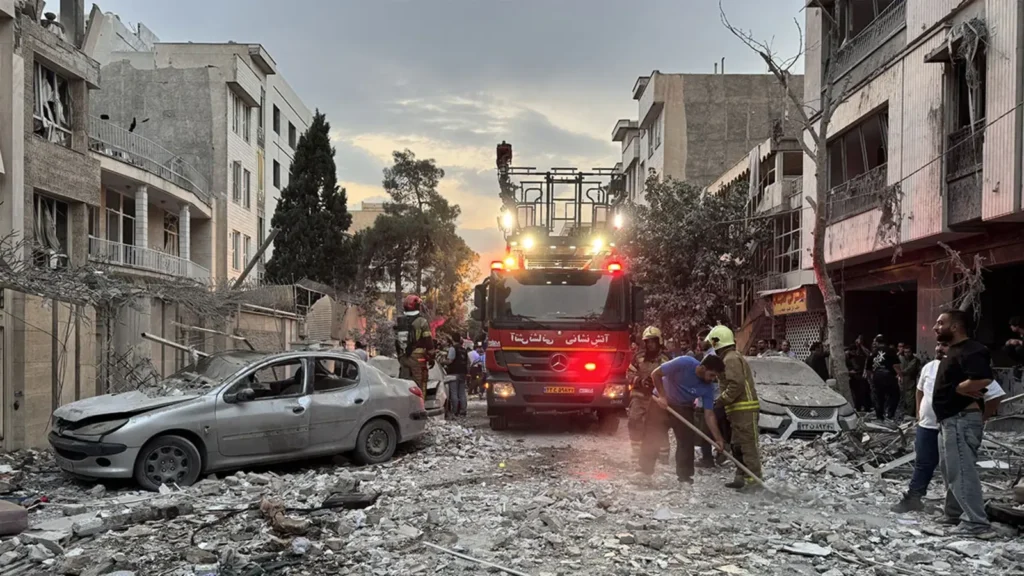
Nuclear Talks and Diplomatic Breakdown
Attempts to resolve pressures through tactfulness have been inconsistent. The 2015 Joint Comprehensive Plan of Action( JCPOA), also known as the Iran nuclear deal, was a significant corner. It handed Iran with warrants in exchange for limiting its nuclear conditioning. Still, Israel opposed the agreement, claiming it didn’t go far enough. The U.S. pullout from the deal in 2018, under President Trump — encouraged by Israeli prompting — collapsed the agreement. Since also, Iran has also proceeded with uranium enrichment, raising admonitions in both Tel Aviv and Washington. Political Sweats have yet to restore a consistent result.
Civilian Impact and Fear of Escalation
While the political and military elite drive the conflict, it’s the civilians in both Iran and Israel who bear the cerebral and financial burden. In Israel, metropolises like Tel Aviv and Haifa routinely conduct bullet defense drills in preparation for a possible war. In Iran, citizens deal with transnational warrants, affectation, and a constant sense of siege. The fear of unforeseen attacks, bullet strikes, or power knockouts creates a climate of anxiety on both sides. An open war would probably lead to severe mercenary casualties, mass relegation, and a philanthropic extremity.
Media Narratives and Propaganda
Media outlets in Tehran and Tel Aviv play a major part in shaping public perception. Iranian state media frequently portray Israel as an imperialist and illegitimate force, using religious and anti-Zionist rhetoric. Meanwhile, Israeli media focus on Iran’s support of terrorism and its threat to “ wipe Israel off the map. ” These prejudiced narratives contribute to public polarization, making it harder to pursue peace or cooperation. Transnational media also struggle to present a balanced view due to limited access and pressure from governments.
Impact on Global Politics
The Iran-Israel conflict extends far beyond the Middle East. Countries like the United States, Russia, and China have a vested interest in the region’s stability. The U.S. is Israel’s steadfast supporter and frequently supports its military operations either directly or indirectly. Meanwhile, Iran has developed close ties with Russia and China, which give political cover at the United Nations and share in common military drills. These alignments threaten to transubstantiate indigenous pressures into a broader geopolitical battle.
Religious and Ideological Dimensions
Beyond politics and military strategy, the Iran-Israel conflict is deeply embedded in religious and ideological beliefs. Iran’s theocratic governance views the existence of Israel as a treason of Islamic values and a product of Western colonization. Israel, on the other hand, sees itself as a haven for Jews, girdled by hostile nations. This religious architecture engenders unreasonableness, justifies violence, and makes concessions incredibly delicate, as both sides believe their station is divinely sanctioned.
A Glimpse Into the Future
Looking ahead, the prospects for peace between Iran and Israel remain dim. As long as Iran continues its nuclear development and support for anti-Israel groups, and Israel maintains a strategy of preemptive strikes, pressures will probably continue. Still, unanticipated developments — like governance change, grassroots tactfulness, or external peace agreement — could alter the dynamics. For now, the world watches anxiously, hoping that caution prevails over battle in one of the most combustible battles of the ultramodern age.
Conclusion
The Iran-Israel conflict is one of the most complex and potentially explosive battles in ultramodern geopolitics. Embedded in testament, security enterprises, and indigenous dominance, this conflict shows little sign of abating. While direct war remains a worst-case scenario, the recent pattern of military provocations and cyber attacks has elevated pressures to a dangerous position.
The question “ Why did Israel attack Iran? ” can not be answered simply with one event — it’s a consequence of times of distrust, fear, and political calculation. As global powers watch closely, the stopgap remains that tactfulness, still doubtful, can help this cold conflict from turning into a hot war.
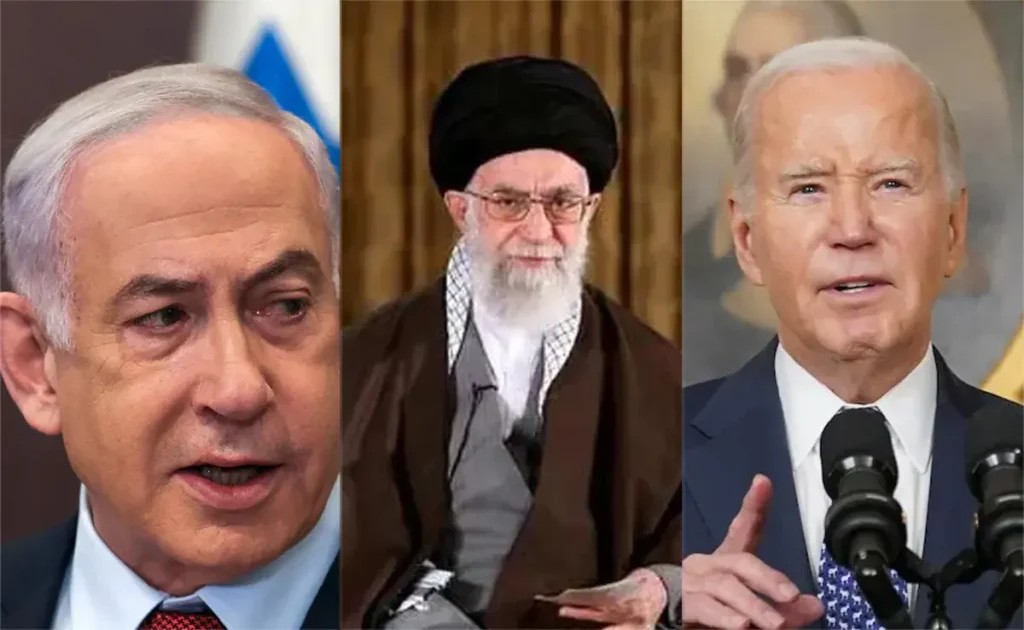
Read More: It’s as beautiful here as the Amalfi Coast – only without the crowds of tourists!
FAQs
Israel believes Iran is developing nuclear munitions and acted preemptively to stop progress in crucial installations near Tehran.
Iran generally acts through deputy groups like Hezbollah and has not launched a direct military assault on Israel.
Iran claims it’s peaceful, but several reports suggest uranium enrichment situations are alarmingly close to munitions-grade.
While pressures are high, both governments presently avoid full-scale war, preferring circular conflict and strategic messaging.
As of now, peace is doubtful without governance changes or a major geopolitical shift, given both nations’ rooted testaments.

